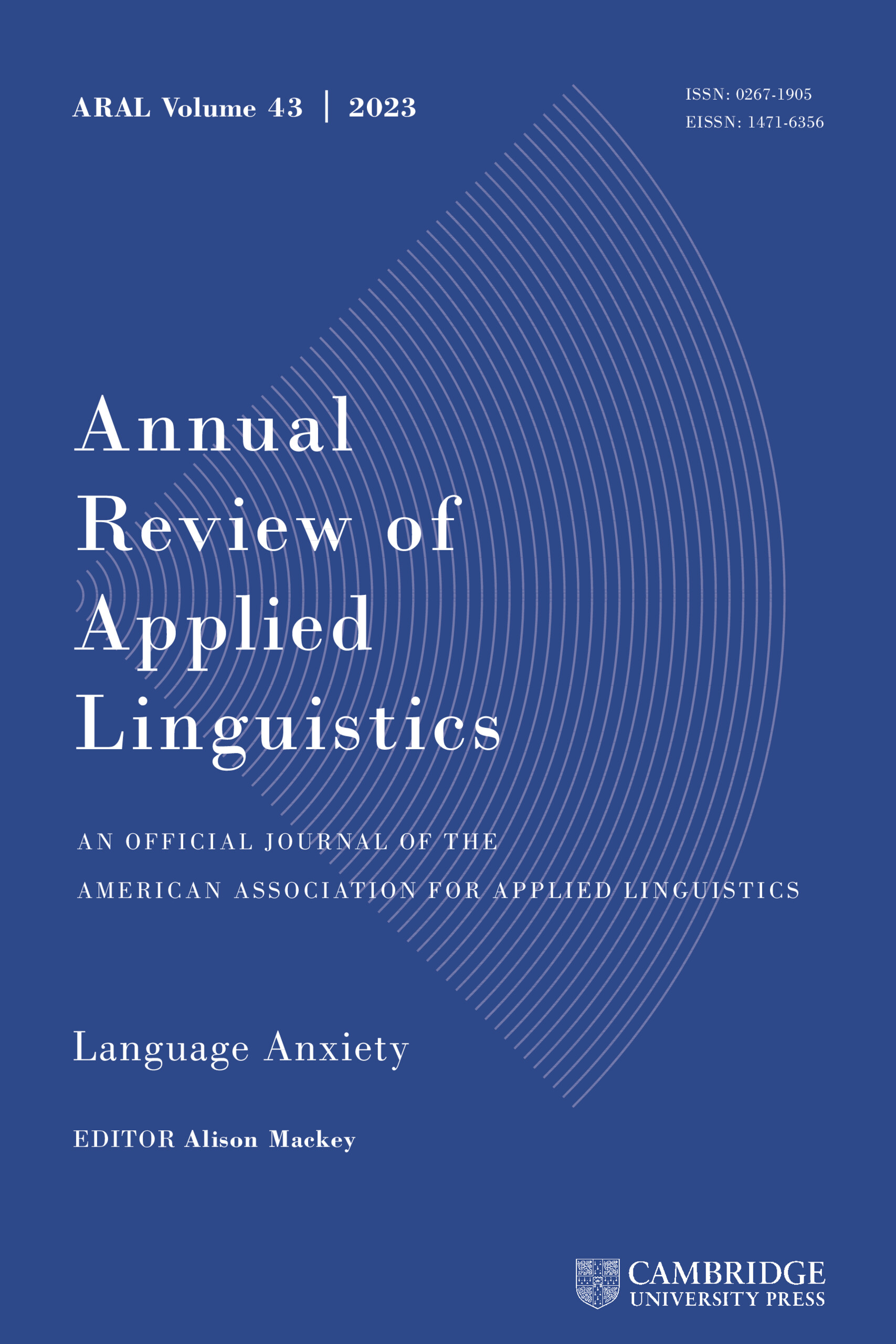Crossref Citations
This article has been cited by the following publications. This list is generated based on data provided by
Crossref.
Kaplan, Robert B
and
Grabe, William
2002.
A modern history of written discourse analysis.
Journal of Second Language Writing,
Vol. 11,
Issue. 3,
p.
191.
Hyland, Ken
2003.
Genre-based pedagogies: A social response to process.
Journal of Second Language Writing,
Vol. 12,
Issue. 1,
p.
17.
Hyland, Ken
2003.
Second Language Writing.
Derewianka, Beverly
2003.
Trends and Issues in Genre-Based Approaches.
RELC Journal,
Vol. 34,
Issue. 2,
p.
133.
Hyon, Sunny
and
Chen, Rong
2004.
Beyond the research article: University faculty genres and EAP graduate preparation.
English for Specific Purposes,
Vol. 23,
Issue. 3,
p.
233.
Lassen, Inger
2006.
Is the press release a genre? A study of form and content.
Discourse Studies,
Vol. 8,
Issue. 4,
p.
503.
Farr, Fiona
2006.
Spoken English, Tesol and Applied Linguistics.
p.
182.
Cheng, An
2006.
Understanding learners and learning in ESP genre-based writing instruction.
English for Specific Purposes,
Vol. 25,
Issue. 1,
p.
76.
Bowles, Hugo
2006.
Bridging the gap between conversation analysis and ESP – an applied study of the opening sequences of NS and NNS service telephone calls.
English for Specific Purposes,
Vol. 25,
Issue. 3,
p.
332.
Spycher, Pamela
2007.
Academic writing of adolescent English learners: Learning to use “although”.
Journal of Second Language Writing,
Vol. 16,
Issue. 4,
p.
238.
Peppler, Kylie A.
and
Kafai, Yasmin B.
2007.
From SuperGoo to Scratch: exploring creative digital media production in informal learning.
Learning, Media and Technology,
Vol. 32,
Issue. 2,
p.
149.
Paltridge, Brian
2007.
International Handbook of English Language Teaching.
p.
931.
Hyland, Ken
2007.
International Handbook of English Language Teaching.
p.
391.
Yunxia Zhu
2008.
From cultural adaptation to cross-cultural discursive competence.
Discourse & Communication,
Vol. 2,
Issue. 2,
p.
185.
Gimenez, Julio
2008.
Beyond the academic essay: Discipline-specific writing in nursing and midwifery.
Journal of English for Academic Purposes,
Vol. 7,
Issue. 3,
p.
151.
Burns, Anne
and
Moore, Stephen
2008.
Questioning in simulated accountant–client consultations: Exploring implications for ESP teaching.
English for Specific Purposes,
Vol. 27,
Issue. 3,
p.
322.
Tupper, Kenneth W.
2008.
Drugs, discourses and education: a critical discourse analysis of a high school drug education text.
Discourse: Studies in the Cultural Politics of Education,
Vol. 29,
Issue. 2,
p.
223.
Martin, J.R.
2009.
Genre and language learning: A social semiotic perspective.
Linguistics and Education,
Vol. 20,
Issue. 1,
p.
10.
Le, Elisabeth
2009.
Editorials’ genre and media roles: Le Monde's editorials from 1999 to 2001.
Journal of Pragmatics,
Vol. 41,
Issue. 9,
p.
1727.
Montemayor-Borsinger, Ann
2009.
Working with disciplinary discourses in the light of systemic functional theory.
DELTA: Documentação de Estudos em Lingüística Teórica e Aplicada,
Vol. 25,
Issue. 1,
p.
131.




